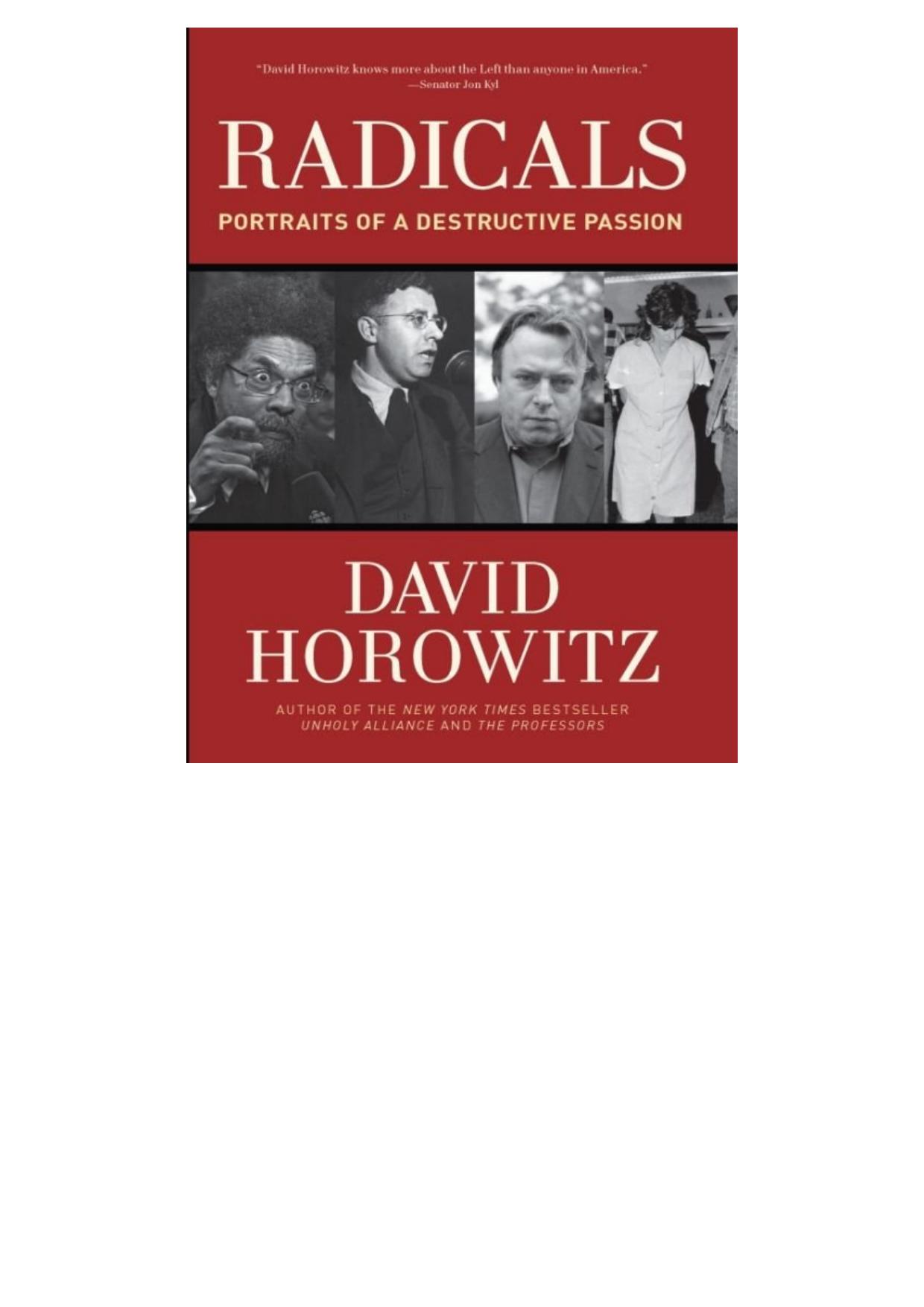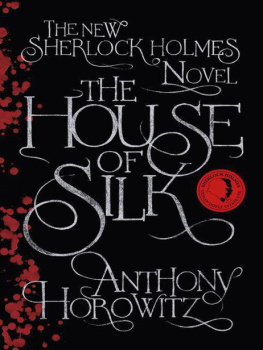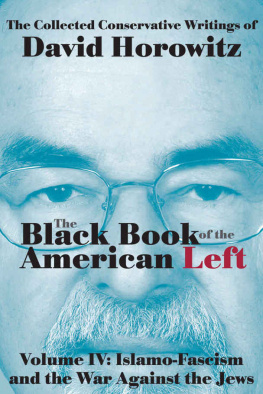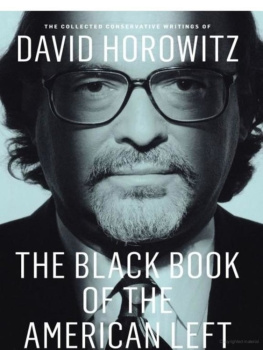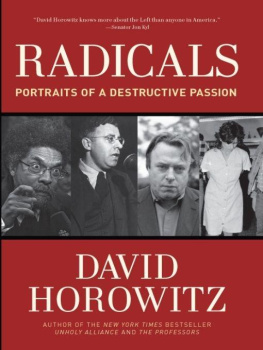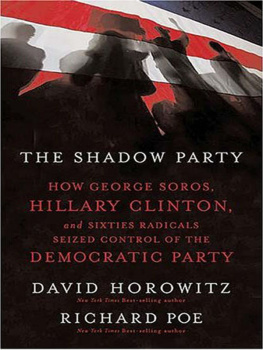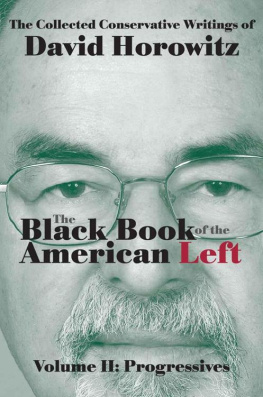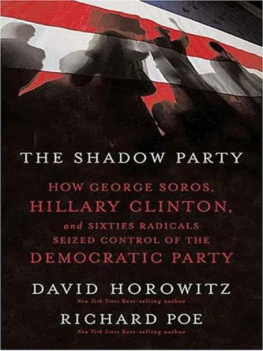Table of Contents
But I, with my memoryall the dead and the mad
are in my custody, and I am
the nemesis of the would-be forgotten.
Saul Bellow,Herzog
INTRODUCTION
A Universal Aspiration
All the totalitarian movements of modernity have been inspired by the same fantasy of a world made right and finally brought into harmony with itself. This utopian delusion is not restricted to aspiring commissars or religious fanatics. In one form or another, it is the ideal of every believer in a universal progress, including those who would be dismayed to think of themselves in such destructive company.
The desire to make things better is an impulse essential to our humanity. But taken beyond the limits of what is humanly possible, the same hope is transformed into a destructive passion, until it becomes a desire to annihilate whatever stands in the way of the beautiful idea. Nihilism is thus the practical extreme of the radical project. Consequently, the fantasy of a redeemed future has repeatedly led to catastrophic results as progressive radicals pursue their impossible schemes. It is an enduring irony of the human condition that the urgency to make the world a better place is also the chief source of the suffering that human beings have inflicted on each other from the beginning of time.
The present volume focuses on individuals who are adherents of the progressive faith, a label that has been embraced by Marxists and anarchists, socialists and liberals alike. Radical normally connotes a sharp and violent break with the existing order, which would suggest that the careers described in these pages were confined to the fringes of the political culture. Nothing could be further from the truth. Christopher Hitchens was an internationally celebrated journalist and author; Bettina Aptheker is an acclaimed professor at an elite university; and Cornel West is a celebrity academic who has been friends with two Democratic presidents, and is the author of best-selling books praised by arbiters of the literary culture. Saul Alinsky, a prominent figure in the radical Sixties posthumously became the political guide to an entire generation of American progressives, including an occupant of the Oval Office.
Radicals have often been described as liberals in a hurrysharing similar goals but with expectations that were high and timetables that were short. These are indeed attributes of the terrorists Kathy Boudin and Susan Rosenberg, whose stories are told in this text. But far from being condemned by liberals who would not themselves think of committing their crimes, they have been treated as spiritual comrades, and embraced as victims of a society whose injustices encouraged them to commit their desperate acts. Liberals of this disposition were once referred to as fellow travelers, people who failed to muster the courage of their convictions but nonetheless shared the radical dream of a universal progress and a world that would be socially just.
The type of this fellow traveler was dissected in a famous Cold War novel by Lionel Trilling in the character of John Laksell. Laksell therefore became an anti-anti-Communist, and took his stand as an opponent of those who opposed the Marxist totalitarian idea.
Sixty years later, Trillings observations apply to the fellow travelers of radicalism, who are generally referred to as liberals, and who make up the expansive ranks of the progressive cause. They refuse to oppose the fundamental ideas behind the radicals assault on free societies because to do so would make them illiberal and reactionary and put them in the camp of the conservative right. The failure of these fellow travelers to oppose radical ideas explains the success radicals have achieved in pushing their cause beyond the social margins. Over the last several decades, the radical critique of American democracy has become the curriculum of American universities, and the culture of its liberal elitesa fact reflected in the otherwise inexplicable career of Professor Cornel West, which is described in the pages that follow.
Once a partisan of the progressive cause, I have devoted myself since leaving its ranks to an effort to comprehend itfirst to understand what prompts people to believe in world-encompassing and world-transforming myths; and second, to explore the tragic consequences of the attempts to act on them. This was the subject of Radical Son, an autobiography published in 1997, and of a series of essays and books I have written over the last twenty years, including Destructive Generation , The Politics of Bad Faith, Unholy Alliance, and Left Illusions. I have also written two small volumes, The End of Time and A Point in Time, which explore the way the radical passion is a religious response to our common human fate. The present work is perhaps the last I will write about a subject that has occupied me in one way or another over the course of a lifetime.
When all is said and done, what has impressed me most, after all these years, is how little we human beings are able to learn collectively from our experience, how slowly we do learn, and how quickly we forget.
The chapters that follow begin with an inquiry into the life and thought of Christopher Hitchens, a writer who had serious second thoughts about some of his radical commitments but was unable to leave the progressive faith. Hitchens life and work offer an opportunity to examine the issues that define a radical outlook, and the moral and intellectual incoherence that overtake an intelligent mind whose second thoughts remain incomplete.
The second chapter follows the life of an icon of radical feminism, and is a study in the totalitarian quest for a unity of the political and the personal. We are all prisoners of what Hegel called an unhappy consciousness, reflecting the division between the world and the self. Radicals seek to overcome this division by creating a new world that will resolve this dilemma. The practical result of this effort is the embrace of a totalitarian politics and the inevitable detachment of the individual from her own reality.
The third chapter follows the improbable career of Professor Cornel West, a remarkably shallow intellect whose rise to cultural eminence has been made possible by his personification of progressive clichs. His career is consequently a reflection of a general cultural decline.
The fourth chapter focuses on a group of individuals who are best described as Nechaevists, after the nineteenth-century Russian terrorist of that nameprivileged youth who jettison the opportunities bestowed on them by a generous society to become criminals in the service of a political idea. It is also a tale of the Laksells, perched comfortably on the heights of society and culture, who work assiduously to create sympathy for the perpetrators of indefensible deeds.
The fifth chapter diverges from the others as the story of an un-political woman whose coming of age in a political decade encouraged her to pursue the idea of self-liberation to the point of personal disaster. Following decades of drug abuse and descent into chaos, she finally rescued herself from ruin by rejecting her identity as a cultural victim to grasp the specific truth of her life.

